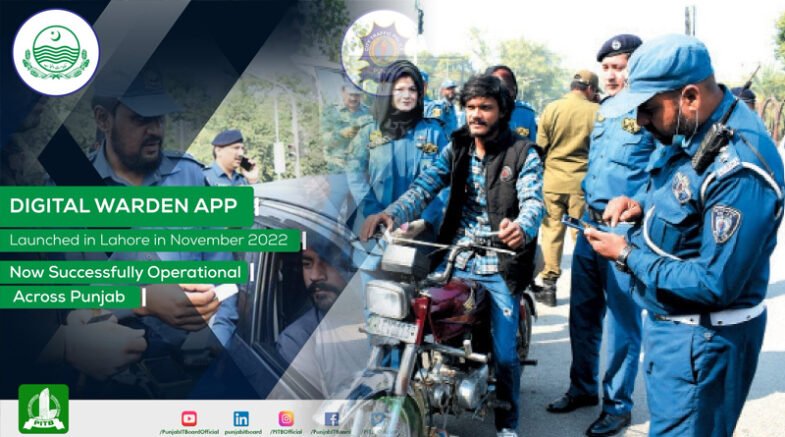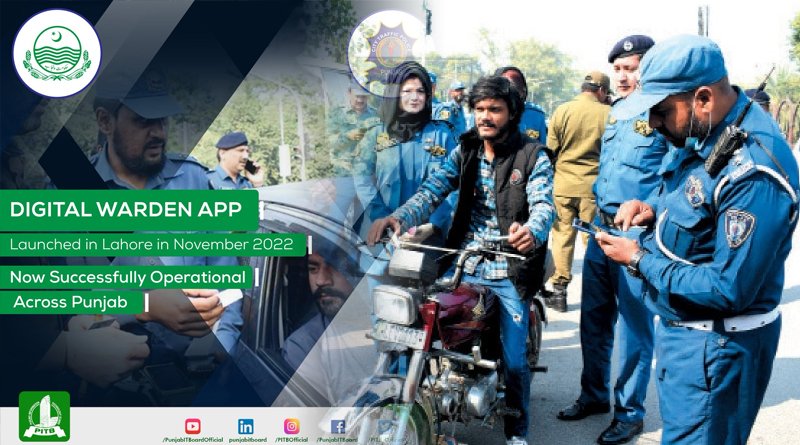Digital Warden App has been used to issue more than 4.3 million digital challans totaling approximately PKR 1.75 billion since April of last year.

The Digital Warden App, created by the Punjab Information Technology Board (PITB) for the City Traffic Police, has been used to issue more than 4.3 million digital challans totaling approximately PKR 1.75 billion since April of last year.
Punjabi residents have received fines for driving the wrong way, not wearing helmets, and improper parking.
PITB Chairman Faisal Yousaf presided over a meeting to review progress when this was revealed. Syed Qasim Ifzal, the Additional Director General (ADG) of the PITB, as well as other senior officials, attended the meeting. The app aims to use technology to enhance public safety and security in the Punjab province of Pakistan.
The Digital Warden App, according to PITB Chairman Faisal Yousaf, has not only made it possible to get rid of complaints about fake and bogus challans but has also aided in achieving transparency. The chair continued by stating that by forgoing the printing of challan books, the City Traffic Police was able to save more than PKR 90 million.
The Digital Warden App was released by Punjab Police and was created by PITB. The goal of the Digital Warden App is to make it easier for traffic police officers to adopt a paperless work culture and process all challans using their mobile devices.
By facilitating the issuance of electronic tickets for traffic infractions, the app is intended to increase the effectiveness of traffic wardens and improve road safety. Therefore, the app would aid in the removal of paper-based challan books and work processes.
The mission of the PITB is to promote the use of information technology for the development and growth of the Punjab province. The organization aims to bridge the digital divide and provide access to modern technology to all citizens, regardless of their socioeconomic background.
To achieve this mission, the PITB has undertaken a number of initiatives in areas such as e-governance, health, education, and agriculture.
